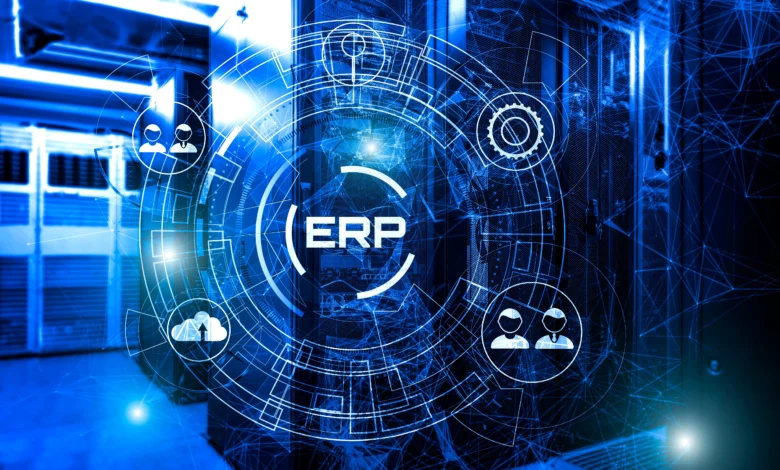Top Enterprise Software Development Companies Your Complete Guide Business Solutions

In today’s digital landscape, choosing the right enterprise software development companies can make or break your business transformation journey. With over 26,000 software development companies worldwide, finding partners who understand enterprise-level complexity, scalability requirements, and industry-specific challenges has become increasingly critical.
Enterprise software development companies specialize in creating robust, scalable solutions that streamline operations, enhance productivity, and drive sustainable growth for large organizations. Whether you’re looking to modernize legacy systems, develop custom applications, or implement cutting-edge technologies, selecting the right development partner requires careful consideration of technical expertise, industry experience, and proven track records.
What Are Enterprise Software Development Companies?
Enterprise software development companies are specialized technology firms that focus on creating sophisticated software solutions for large organizations, corporations, and government entities. Unlike traditional software development services that cater to small businesses or startups, these companies possess the technical expertise, resources, and infrastructure necessary to handle complex, mission-critical projects that serve thousands or millions of users simultaneously.
These organizations typically offer comprehensive services, including custom application development, system integration, cloud migration, digital transformation consulting, and ongoing maintenance support. They understand the unique challenges enterprises face, such as regulatory compliance, data security, scalability requirements, and integration with existing legacy systems.
The key differentiator lies in their ability to deliver enterprise-grade solutions that meet stringent security standards, provide robust performance under heavy loads, and integrate seamlessly with complex IT ecosystems. Most reputable enterprise software development companies hold industry certifications, follow established development methodologies like Agile or DevOps, and maintain dedicated teams of senior developers, architects, and project managers.
Key Services Offered by Leading Enterprise Software Development Companies
Custom Enterprise Application Development
Leading development companies excel in creating bespoke applications tailored to specific business requirements. These solutions often include enterprise resource planning (ERP) systems, customer relationship management (CRM) platforms, supply chain management tools, and industry-specific applications. Custom development ensures that software aligns perfectly with existing business processes while providing the flexibility to adapt as requirements evolve.
Cloud-Native Development and Migration
Modern enterprise software development companies prioritize cloud-native architectures, leveraging platforms like AWS, Microsoft Azure, and Google Cloud Platform. They help organizations migrate legacy applications to the cloud, develop microservices-based architectures, and implement containerization strategies using technologies like Docker and Kubernetes. This approach enhances scalability, reduces infrastructure costs, and improves system reliability.
API Development and Integration Services
Enterprise environments require seamless integration between multiple systems and third-party services. Top development companies specialize in creating robust APIs, implementing service-oriented architectures (SOA), and establishing secure data exchange protocols. They ensure that new applications can communicate effectively with existing systems, databases, and external services.
Digital Transformation Consulting
Beyond development, these companies provide strategic consulting services to guide digital transformation initiatives. They assess current technology stacks, identify optimization opportunities, recommend modern solutions, and create comprehensive roadmaps for technology modernization. This holistic approach ensures that software development aligns with broader business objectives.
How to Choose the Right Enterprise Software Development Partner

Evaluate Technical Expertise and Technology Stack
When selecting enterprise software development companies, assess their proficiency in relevant programming languages, frameworks, and platforms. Look for expertise in languages like Java, C#, Python, and JavaScript, along with experience in enterprise frameworks such as Spring Boot, .NET Core, and Node.js. Additionally, verify their knowledge of database technologies, cloud platforms, and emerging technologies like artificial intelligence and machine learning.
Review Portfolio and Case Studies
Examine the company’s portfolio to understand their experience with similar projects and industries. Request detailed case studies that demonstrate their ability to handle complex requirements, overcome technical challenges, and deliver successful outcomes. Pay attention to project scale, technology complexity, and measurable business results achieved for previous clients.
Assess Development Methodologies and Project Management
Professional development companies follow established methodologies like Agile, Scrum, or DevOps to ensure efficient project delivery. Inquire about their project management processes, communication protocols, quality assurance procedures, and testing strategies. They should provide transparent reporting, regular updates, and collaborative tools that keep stakeholders informed throughout the development lifecycle.
Verify Security and Compliance Standards
Enterprise applications handle sensitive data and must comply with industry regulations such as GDPR, HIPAA, SOX, or PCI DSS. Ensure that potential partners have experience implementing appropriate security measures, conducting security audits, and maintaining compliance standards. Look for certifications like ISO 27001, SOC 2 Type II, or industry-specific compliance credentials.
Top Technologies Used by Enterprise Software Development Companies
Modern Programming Languages and Frameworks
Enterprise development relies heavily on proven programming languages that offer stability, performance, and extensive ecosystem support. Java remains a cornerstone technology due to its platform independence, robust security features, and mature enterprise frameworks. C# and the .NET ecosystem provide excellent integration with Microsoft technologies commonly found in enterprise environments.
Python has gained significant traction for its versatility in web development, data analytics, and machine learning applications. JavaScript, particularly with Node.js, enables full-stack development and real-time applications. Modern frameworks like React, Angular, and Vue.js power sophisticated user interfaces, while backend frameworks such as Spring Boot, ASP.NET Core, and Django accelerate development processes.
Database Technologies and Data Management
Enterprise applications require robust data management solutions capable of handling large volumes of transactions while maintaining data integrity and performance. Relational databases like PostgreSQL, MySQL, and Microsoft SQL Server remain popular choices for structured data storage. NoSQL databases such as MongoDB, Cassandra, and Redis provide flexibility for handling unstructured data and high-velocity applications.
Modern enterprise solutions increasingly adopt hybrid approaches, combining different database technologies based on specific use cases. Data warehousing solutions like Amazon Redshift, Google BigQuery, and Snowflake support advanced analytics and business intelligence requirements.
Cloud Platforms and DevOps Tools
Leading enterprise software development companies leverage cloud platforms to deliver scalable, reliable solutions. Amazon Web Services (AWS) provides comprehensive services including computing power, storage, databases, and machine learning capabilities. Microsoft Azure offers seamless integration with existing Microsoft ecosystems and hybrid cloud solutions. Google Cloud Platform excels in data analytics, machine learning, and container orchestration.
DevOps practices have become essential for efficient software delivery. Tools like Jenkins, GitLab CI/CD, and Azure DevOps automate building, testing, and deployment processes. Container technologies such as Docker and Kubernetes enable consistent deployment across different environments while supporting microservices architectures.
Benefits of Working with Professional Enterprise Software Development Companies
Access to Specialized Expertise
Partnering with established development companies provides access to diverse technical expertise that would be expensive and time-consuming to build internally. These organizations employ senior developers, solution architects, UI/UX designers, quality assurance specialists, and project managers with extensive enterprise experience. This collective knowledge ensures that projects benefit from best practices, proven methodologies, and lessons learned from previous implementations.
Faster Time-to-Market
Professional development teams can accelerate project delivery through established processes, reusable components, and parallel development approaches. They possess the resources to scale teams quickly, implement efficient development workflows, and leverage automation tools that reduce manual effort. This efficiency translates to faster time-to-market for critical business applications.
Cost-Effective Solutions
While enterprise software development represents a significant investment, partnering with specialized companies often proves more cost-effective than building internal capabilities. External partners provide predictable pricing models, eliminate recruitment and training costs, and offer flexible engagement options that align with project requirements and budget constraints.
Ongoing Support and Maintenance
Reputable enterprise software development companies provide comprehensive post-deployment support, including bug fixes, performance optimization, security updates, and feature enhancements. They establish service level agreements (SLAs) that guarantee response times and system availability, ensuring that critical business applications remain operational and performant.
Common Challenges in Enterprise Software Development

Integration Complexity
Enterprise environments typically include numerous legacy systems, third-party applications, and data sources that must work together seamlessly. Integration challenges arise from incompatible data formats, different communication protocols, and varying security requirements. Successful development companies address these challenges through careful planning, standardized integration patterns, and robust middleware solutions.
Scalability and Performance Requirements
Enterprise applications must handle varying loads while maintaining consistent performance. Scalability challenges include database bottlenecks, network latency, and resource contention. Professional development teams design applications with scalability in mind, implementing load balancing, caching strategies, and distributed architectures that can grow with business needs.
Security and Compliance Considerations
Enterprise software must protect sensitive data while complying with industry regulations and internal security policies. Security challenges include authentication and authorization, data encryption, audit trails, and vulnerability management. Experienced development companies implement comprehensive security frameworks, conduct regular security assessments, and maintain compliance with relevant standards.
Change Management and User Adoption
Introducing new software systems often requires significant changes to established business processes and user workflows. Successful implementations require careful change management, comprehensive training programs, and ongoing user support. Leading development companies collaborate closely with stakeholders to minimize disruption and ensure smooth transitions.
Industry-Specific Considerations for Enterprise Software Development
Healthcare and Life Sciences
Healthcare organizations require software solutions that comply with HIPAA regulations, integrate with electronic health records (EHR) systems, and support clinical workflows. Enterprise software development companies serving this sector must understand medical terminology, regulatory requirements, and interoperability standards like HL7 and FHIR.
Also Read: How to Buy Chainlink Cryptocurrency Complete Beginner Guide 2025
Financial Services
Financial institutions need applications that handle high-volume transactions, maintain strict security controls, and comply with regulations such as PCI DSS, SOX, and Basel III. Development partners must demonstrate expertise in financial protocols, risk management systems, and real-time processing capabilities.
Manufacturing and Supply Chain
Manufacturing companies require solutions that integrate with industrial systems, support Internet of Things (IoT) devices, and optimize supply chain operations. Enterprise software must handle complex logistics, inventory management, and production planning while providing real-time visibility into operations.
Retail and E-commerce
Retail organizations need omnichannel solutions that provide consistent customer experiences across multiple touchpoints. Development requirements include inventory management, payment processing, customer analytics, and integration with various sales channels and marketing platforms.
Emerging Trends in Enterprise Software Development

Artificial Intelligence and Machine Learning Integration
Modern enterprise applications increasingly incorporate AI and ML capabilities to automate processes, provide intelligent insights, and enhance user experiences. Machine learning algorithms help with predictive analytics, automated decision-making, and pattern recognition. Natural language processing enables chatbots, document analysis, and voice interfaces.
Low-Code and No-Code Platforms
Low-code and no-code development platforms are gaining popularity for rapid application development and business user empowerment. These platforms enable faster prototyping, reduce development costs, and allow business users to create simple applications without extensive programming knowledge. However, complex enterprise requirements often still require traditional development approaches.
Microservices Architecture
Microservices architecture continues to gain adoption for its flexibility, scalability, and maintainability benefits. This approach breaks large applications into smaller, independent services that can be developed, deployed, and scaled separately. Container technologies and service mesh solutions support microservices implementations.
Edge Computing and IoT Integration
Edge computing brings processing power closer to data sources, reducing latency and improving performance for IoT applications. Enterprise software increasingly needs to handle data from connected devices, sensors, and edge computing nodes while maintaining centralized control and analytics capabilities.
Cost Factors in Enterprise Software Development
Project Scope and Complexity
Development costs vary significantly based on project scope, feature complexity, and technical requirements. Simple business applications may cost between $50,000 $200,000, while complex enterprise systems can range from $500,000 to several million dollars. Factors affecting cost include the number of users, integration requirements, custom features, and regulatory compliance needs.
Technology Stack and Platform Choices
Technology decisions impact both development and ongoing maintenance costs. Open-source technologies may reduce licensing costs but require more specialized expertise. Cloud-native solutions offer scalability benefits but involve continuing operational expenses. Legacy system integration often requires additional time and resources due to compatibility challenges.
Team Composition and Expertise Level
Development team composition significantly affects project costs. Senior developers and specialized experts command higher rates but deliver faster, higher-quality results. Offshore development can reduce costs but may require additional project management and communication overhead. The optimal approach depends on project requirements, timeline, and quality expectations.
Ongoing Maintenance and Support
Post-deployment costs include hosting, monitoring, security updates, bug fixes, and feature enhancements. These ongoing expenses typically range from 15% to 25% of initial development costs annually. Cloud hosting costs scale with usage, while on-premises solutions require infrastructure investments and internal IT resources.
Conclusion
Selecting the right enterprise software development companies is crucial for successful digital transformation and business growth. The best partners combine deep technical expertise, industry experience, and proven methodologies to deliver scalable, secure solutions that meet complex enterprise requirements. When evaluating potential partners, focus on their track record, technical capabilities, security practices, and ongoing support services.
Ready to transform your business with custom enterprise software? Contact leading enterprise software development companies today to discuss your project requirements and receive detailed proposals. The right development partner will help you navigate technical challenges, accelerate time-to-market, and achieve your digital transformation objectives while ensuring long-term success and scalability.
